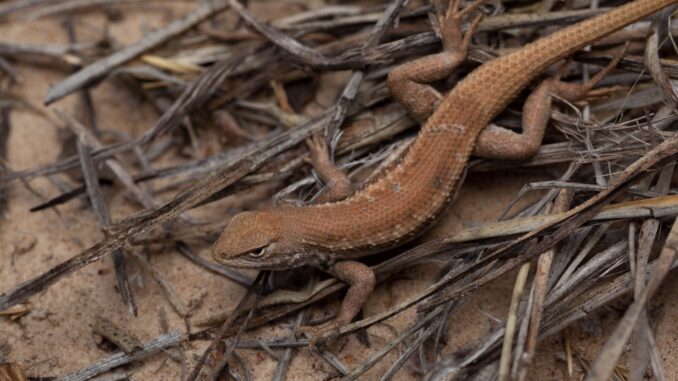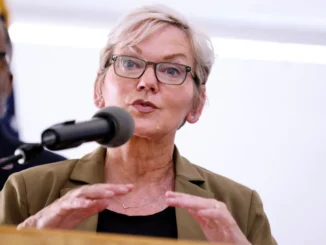
Texas Land Commissioner Dawn Buckingham is concerned that a recent push from the U.S. Fish and Wildlife Service may lead to problems for the state’s oil and gas industry.
The federal agency proposed in July that the Dune Sagebrush Lizard (DSL) be labeled an endangered species under the Endangered Species Act of 1973.
The lizard is native to West Texas and New Mexico, with much of the population inhabiting the Permian Basin—which supplies almost 40 percent of U.S. oil production and 15 percent of the country’s natural gas production.
The USFWS argues that the DSL is “highly susceptible” to habitat loss and that destroying the lizard’s food source and the sand dunes it often inhabits may hinder the species’ survival.
The agency claims that oil and gas industry activity, including surface exploration, exploratory drilling, and oil field development, directly results in habitat loss for the DSL. They concluded by saying, “Threats are so pervasive and severe across the species range that they heighten the risk of extinction for the dunes sagebrush lizard in the near future.”
If the DSL is declared an endangered species, activities that harm the lizard’s environment and food sources would be prohibited.
However, in a letter to the USFWS, Buckingham said the declaration would harm Texas’ oil and gas industry.
“Listing the DSL will surely bring with it a designation of critical habitat as well as rules strictly limiting, or even prohibiting, surface activities that are absolutely necessary for oil and gas exploration and production,” wrote Buckingham.
Buckingham explained that she oversees the Permanent School Fund and the Permanent University Fund, which support Texas schools and colleges using oil and gas revenue.
“Due to the certainty of diminished oil and gas revenues to both the School Fund and the PUF should the Rule take effect, the listing of the DSL as endangered under the Endangered Species Act will have a significant detrimental impact on education in Texas,” wrote Buckingham.
The land commissioner also contended that the USFWS’ analysis did not consider the lizard’s population trends, highlighting a study that “found their numbers to be increasing.”
“This demonstrated increase in population numbers and improved demographic survival and immigration metrics directly contradict certain USFWS contentions, although USFWS does concede that the DSL ‘still occupies much of its range,” wrote Buckingham.
Buckingham says the Texas General Land Office will not assist the USFWS in implementing any new protection rule for the DSL and told Texas Scorecard that she will continue fighting against the lizard becoming an endangered species.
“The Biden Administration is proposing the destruction of our domestic energy engine based on a mishmash of inconsistent statements, disregarded facts, and admitted unknowns,” said Buckingham. “As the steward of over 13 million acres of energy-rich state land, I won’t allow this administration to use so-called ‘conservation’ as a political token aimed at crippling Texas’ economy and stealing from school children.”



